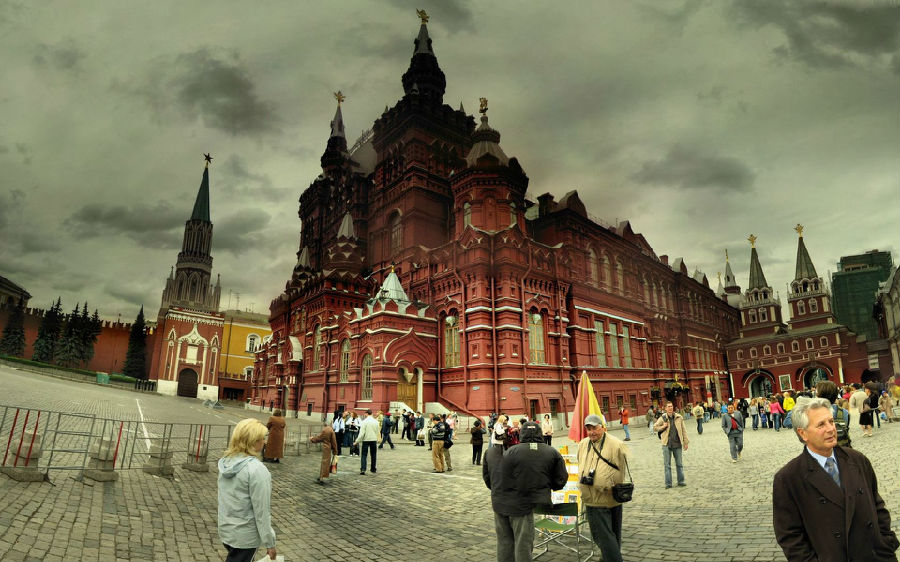Thus the Varangians came into contact with the East Slavs of modern Russia, Ukraine and Belarus.
因此和現在俄羅斯東部、烏克蘭和白俄羅斯的斯拉夫人取得了聯系。
The Varangians also travelled south down the rivers Volga and into Dnepr to the land of the Byzantines.
瓦良格人向南遷徙,沿伏爾加河到達拜占庭土地上。
Not being traders themselves, the Varagians relationships with the Byzantines was simple.
他們自己并不是商人,瓦良格人和拜占庭人的關系很單純。
Sometimes they fought against the Byzantines.
有時候他們對抗拜占庭人。
Sometimes they fought alongside the Byzantines, depending on who was paying them.
有時候又聯合拜占庭人,這取決于是不是對自己有利。
For example the Byzantines recorded that in 839 AD,
比如拜占庭有記錄公元839年,
the emperor Theophilos hired a few Varangians called the Rhos to fight for him.
賽奧夫魯斯雇傭了一些稱為羅斯的瓦良格人來為他打仗。
The arrangement was not unusual, but interesting in that it gives us one,
這樣的情況并不稀奇,但有趣的是這給了我們

but only one possible derivation of the term Russ.
“Russ"一詞的唯一可能的詞源
As with the term Slav the meaning of Russ remains elusive and controversial to this day.
斯拉夫這個詞和俄羅斯都是今天都要回避和存有爭議的。
Unlike the Romans who took their name from a village on the Tiber river.
不像羅馬地名取自臺伯河上一個小村莊。
And unlike the Americans who got their name from a 3rd Italian explorer.
也不像美國名字來自第三個意大利的探險家。
The Russians have no clue what their civilization's name really means.
俄羅斯人不知道他們文明的名字真正的含義。
But whatever the case the Varangian influence upon Russian culture is undeniable.
無論事實如何,瓦良格人對俄羅斯文化的影響不可否認。
The main centers of Varangian influence were two—the cities of Novgorod and Kiev.
瓦良格影響的主要中心有兩個——諾夫哥羅德和基輔的城市。











